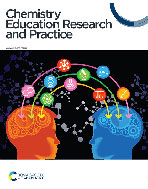Characterizing and identifying influences on undergraduates’ attitudes towards organic chemistry
Abstract
Despite the important role organic chemistry plays in a wide range of industries, the undergraduate organic chemistry course sequence is considered to be difficult for and feared by students. Although work has been done to identify and address student difficulties within the cognitive and psychomotor domains, little work has focused on investigating student affect towards organic chemistry. Identifying student emotions towards the course and how these emotions impact students’ learning experiences is a key component in addressing student success in organic chemistry. In general chemistry studies, attitudes have been linked to persistence and performance in the class, but little work has been done to determine what role attitude plays in organic chemistry students’ experiences. In this qualitative study, student attitudes towards organic chemistry and the influences that shape those attitudes were explored. Students displayed a wide range of attitudes towards organic chemistry, including positive, negative, neutral, and blended attitudes. Five major influences were shown to have shaped these attitudes including the reputation of the course, students’ educators, experiences with organic chemistry, experiences with introductory chemistry, and individual experiences. Findings also indicated that many student attitudes towards organic chemistry are in place before they have begun the course, but that students’ attitudes may change after interacting with the course material. Limitations of this investigation, as well as implications for research and practitioners, are discussed.


 Please wait while we load your content...
Please wait while we load your content...